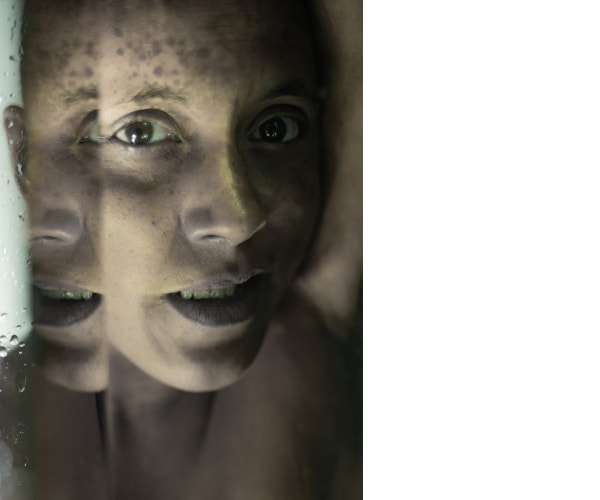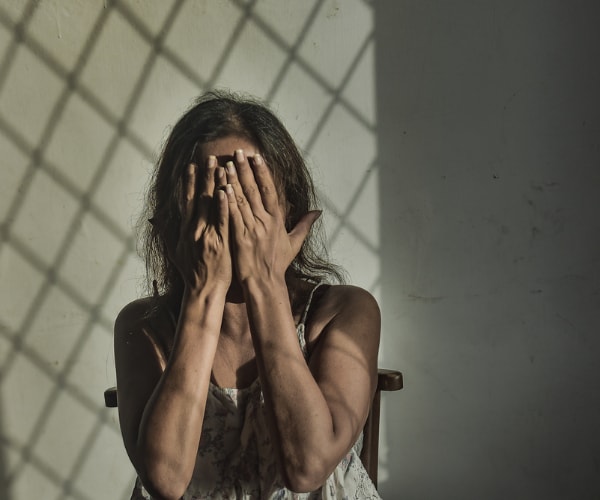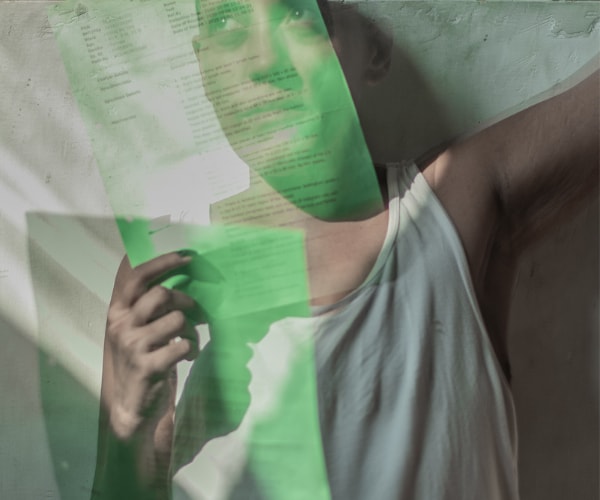
Aug 04 2021.
views 1932Today on the Buzz I speak to a very strong individual. Natalie's talents are limitless from Photography to Writing to Designer, Natalie has done it all and continues to do so. Natalie also took the time to come on my show Date with Danu and speak about the journey of fighting cancer and it was a very powerful interview. Many requests came my way for a print interview on this fighter so here is me sitting with Natalie for a quick chat on the Buzz.

What has cancer taught you?
I would say that at every part of this harrowing process, the lessons have been different. For example, right now the lesson is learning to let go. As morbid as it sounds, I have been asking myself if I am ready to die. When you’re this terminal, you can’t help but ask yourself questions like this.
A friend asked me recently if I am not worried about the afterlife and coming to some sense of inner peace with myself before I have to go. But the afterlife isn’t on my mind. Every religion has tried to give us some sense or interpretation of the up and down and I feel little need to worry about the unknown. My concern was more about how I would leave this life. Would I die in excruciating pain? Would the morphine stop working? I don’t fear death, I fear pain. And I fear an incomplete life; leaving before my purpose is fulfilled, as a mother, activist, partner and friend.
Where are the cracks in the system?
The cracks are everywhere, but I think it begins with a lack of allocation of adequate state funding for public healthcare overall. This in turn leads to insufficient staffing and resources – and room for far too much negligence. When negligence exists in a space where you’re meant to save lives – the opposite happens.
I walked into the Maharagama Hospital as a breast cancer patient in May 2020 and by the time I had had it with the hospital and walked out in February this year, I had multiple metastases spread throughout my body and organs which went undetected due to negligence. So what was at first considered curable, has now become lethal. They may not know that I am no longer a patient there, but someone has to care enough in there to make sure patients come in for treatment with adequate follow up. You put your cancer and your life in what are the best hands for the job. You’re not supposed to do the work - your job is to find the willpower to go on.
There is also a massive amount of information missing that should be essential knowledge for patients. So much is left unsaid by many medical practitioners in the system because they know they can get away with it. So long as we continue to revere doctors to an almost godlike status and accept their diagnoses and prognoses without question, then the system will continue to kill people unnecessarily.

Another big concern is how deeply embedded our social ideologies are within the healthcare system. In a space of healing, patients have to often battle social norms just as hard as their illnesses. It is why we expect women cancer patients to wear wigs, ski caps, uncomfortable padded bras so as to preserve a sense of gender that the world expects from you. It is why surgeons opt to offer complimentary breast reconstruction surgeries to younger women to help preserve their marriageability while it is assumed that older women have passed their “sell-by date.”
I am also deeply concerned about how many patients a doctor can keep track of. Most consultant doctors work the first half of the day in government institutions where they will encounter more cases and in turn a larger number of rare cases they could attach their names to. Then the second half of the day is spent in two or even three private hospitals where they see some 20 to 30 patients at each establishment. Patients pay an average of Rs. 3000 for a channelling session which often lasts a maximum of 5 to 7 minutes. Some, less than 3. To be able to fill their personal quota of patients, doctors rush through the process because there are only so many hours in a day and so many patients to see. Do you think the specialist has sufficient time to assess a complex illness like cancer in under 3 minutes? Things slip through the cracks this way. And I am proof.
As a starting point, I ask that the Ministry of Health look into imposing a quota on the number of patients a doctor is able to channel privately. My current oncologist, who was in fact the woman who first diagnosed me with cancer has a self-imposed quota. She allows only 8 – 10 patients to channel her a day and spends a minimum of 30 minutes with them. She has the time to do this without another 22 patients waiting in line to see her for 3 minutes. Shouldn’t this be the way that all consultations go?
What has been your biggest worry when you heard the news?
My son. As a single parent who has raised my kid for almost 9 years by myself, his wellbeing was foremost on my mind. But it has also given me the strength to fight. I want to continue raising the son I brought into this world – I want to see him grow up. To bear witness to his life, I have to keep fighting for mine.
Tell me about your mastectomy surgery?
Firstly, I wouldn’t call it a surgery. Butchery is a more appropriate term. Since the hospital and surgical team were not very communicative, I opted to do my own research on mastectomies. I discovered there were multiple types of surgical cuts and procedures – some that could save your nipples and breast skin which would, in turn, leave you with less scarring and make breast/chest reconstruction easier. I sat in my hospital bed and waited for days before surgery to have a pre-op conversation with my surgical team, but this was not to happen.
Not getting to have anyone from your surgical team talk to you before surgery is not on. A few days later, I found out that not only was the senior surgeon who was to perform the surgery, not in the theatre where I was being operated on, but he also wasn’t even in the hospital that day, opting to perform a more lucrative surgery at a private hospital instead. The result was that a bunch of residents and an SR collectively scarred me badly, without supervision in the OR.
What do you do to stay positive?
I remind myself that I am more than the bad things that have happened to me. I remind myself of how full my life is – I have a partner that loves me beyond words, a son like my twin, 2 beautiful canines and a wealth of the most amazing friends I could have asked for. I also find deep meaning in my work, confronting the things we would rather ignore: our complex relationship with ourselves and one another in the context of gender, race and religion in post-Colonial and postwar Sri Lanka. I know I am a fighter, I just needed to learn how to fight for myself this time.
What are your future plans?
To continue to be a fighter against all the things that drag the human race to its knees. To make more photographs and to celebrate the life I have been blessed with – bad things and all.

Are you hoping to stop treatments, and why?
It’s a daily battle. There are days I feel this battle is too hard and I long to get back to the life I used to have before Cancer and Corona struck together. Cancer medications take as much of a toll on you as the cancer itself. Having watched my father disintegrate into a shadow of himself during his own battle with cancer and starting to see that disintegration in myself when I look in the mirror now has been difficult to say the least. On days like that, I want to give up.
But then there are other days that remind me of what I have to live for: the work I am so proud of, the love I have to live for and my rage against the machines of power. These things make me want to apply that bravery to my own life. It is a reminder that I am still here.
1 Comments
Rio Ziegelaar says:
Aug 16, 2021 at 09:48 pmI have amazing respects to this wonderful human being in her courage to fight against this nasty thing. She has outlined those failures that have been caused by the GOSL since we gained Independence. I have been criticising the fact that those so called Cancer specialist who serve in Maharagama are more interested to leave by 12:00 noon so they can attend to those patients in Private hospitals. My Mum was a Cancer (Breast) patient and visited Maharagama and was warded most of the time at a Private hospital. Just before she passed away I stayed with her in the same room, and had to acceot that at 22:00 hours the Doctor arrived at her bed, while she was sleeping (sleep that did not come easy for her) and saw her foar about 3 minnutes (more 2 mnit I would say) and said she was looking very well. Now this was just after the Lung specialist checked her report and advised us that my Mum had about another 3 days left on the Planet. The Doctor can be rather happy and call himslf lucky that I did not deal with him, instead my younger brother did it. This whole saga made me sick to the bone. Natalie tells it well. WHen will the Medical facilities in Sri Lanka improve? Stay strong Natalie. May you be protected and given all the strength you need.